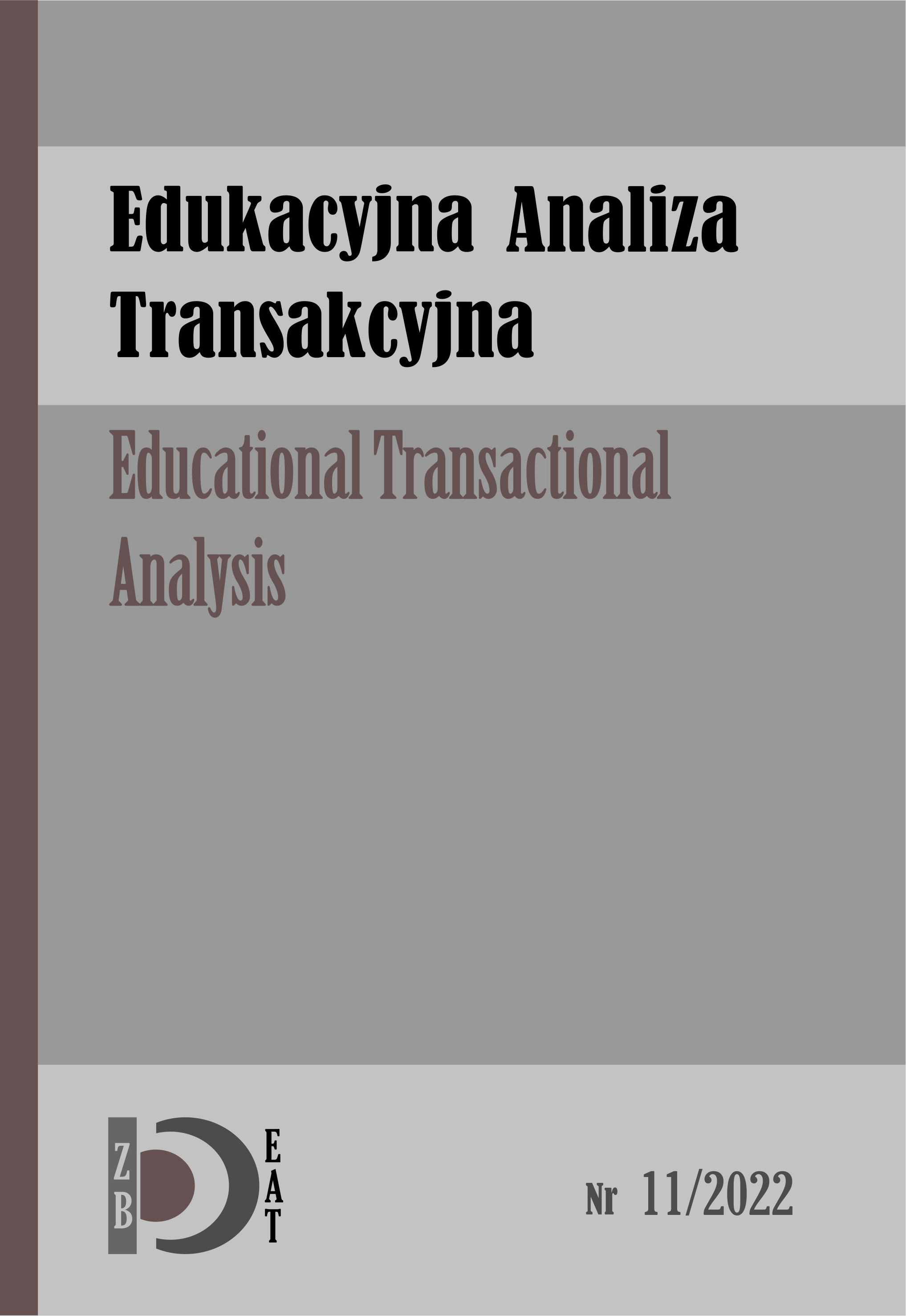Educational strategies of teachers with different styles of self-realization
DOI:
https://doi.org/10.16926/eat.2022.11.05Keywords:
development of teachers and students, styles of self-realization, educational strategiesAbstract
The article presents the results of research on the relationship between the styles of teachers' self-realization and their educational strategies. Five styles of self-realization were measured: self-acceptance, acceptance of others, solving social conflicts, solving internal conflicts, lack of self-realization and random variable educational strategies: strengthening, development, adaptation, ideology. The results of the research from the random sample showed that there is a general difference between the group of teachers not realizing their potentials (lack of self-realization) and other teachers presenting different styles of self-realization. The former identify themselves with heterogeneous strategies, while the latter - with autonomous ones. This was not the case with reinforcement strategies, when all groups used individual (autonomous) rather than collective (heteronomous) reinforcement strategies.
Downloads
References
Angyal A. (1972). Foundations for a science of personality. A Viking Compass Book. New York: Penguin Books.
Bandura A. (1999). Moral disengagement in the perpetration of inhumanities. Personality and Social Psychology Review, 3, 193-209.
Bandura A. (1986). Social foundations of thought and action: A social cognitive theory. New York: Prentice-Hall.
Bauman Z. (2012). Etyka ponowoczesna. Warszawa: Wydawnictwo Aletheia.
Bruner J.S. (1978.) Poza dostarczone informacje. Warszawa: PWN.
Chomczyńska-Rubacha M., Rubacha K. (2007). Płeć kulturowa nauczycieli. Funkcjonowanie w roli zawodowej. Kraków: Impuls.
Gilligan C. (2006). In a Different Voice: Psychological Theory and Women’s Development. Cambridge: Harvard University Press.
Kohlberg L. (984). Essays of moral development. Volume II. The Psychology of Moral Development, San Francisco: Harper&Row.
Maslow A. H. (1986). W stronę psychologii istnienia. Warszawa: IW PAX.
Maslow A.H. (1990). Motywacja i osobowość. Warszawa: IW PAX.
Piaget J. (1981). Równoważenie struktur poznawczych. Warszawa: PWN.
Piaget J. (2006). Studia z psychologii dziecka. Warszawa: PWN.
Rubacha K. (1991). Samorealizacja – poszukiwanie perspektyw badawczych, w: J. Górniewicz (red.), Studia nad problematyką samorealizacji, Toruń: Wydawnictwo UMK.
Rubacha K. (2022). KKS – KKS-R22 – KSS-22 – trzy kwestionariusze do badania samorealizacji. Problematyzacja, operacjonalizacja, właściwości psychometryczne. Podręcznik Pracowni narzędzi Badawczych Komitetu nauk Pedagogicznych PAS. Warszawa-Toruń: Wydawnictwo UMK.
Skarżyńska K. (1991). Konformizm i samokierowanie jako wartości (struktura i źródła). Warszawa: Instytut Psychologii PAN.
Schaffer R.H. (2006). Rozwój społeczny. Dzieciństwo i młodość. Kraków: Wydawnictwo UJ.
Witkowski T. (1978). Wprowadzenie do skali AS-3. Lublin, maszynopis.
Wygotski L. (1971). Wybrane prace psychologiczne. Warszawa: PWN.
Downloads
Published
How to Cite
Issue
Section
License
Copyright (c) 2022 Krzysztof Rubacha

This work is licensed under a Creative Commons Attribution 4.0 International License.
I am aware that the Educational Transactional Analysis journal is published under a Creative Commons license - Attribution (https://creativecommons.org/licenses/by/4.0/legalcode).
By submitting the article, I agree to make it available under this license

